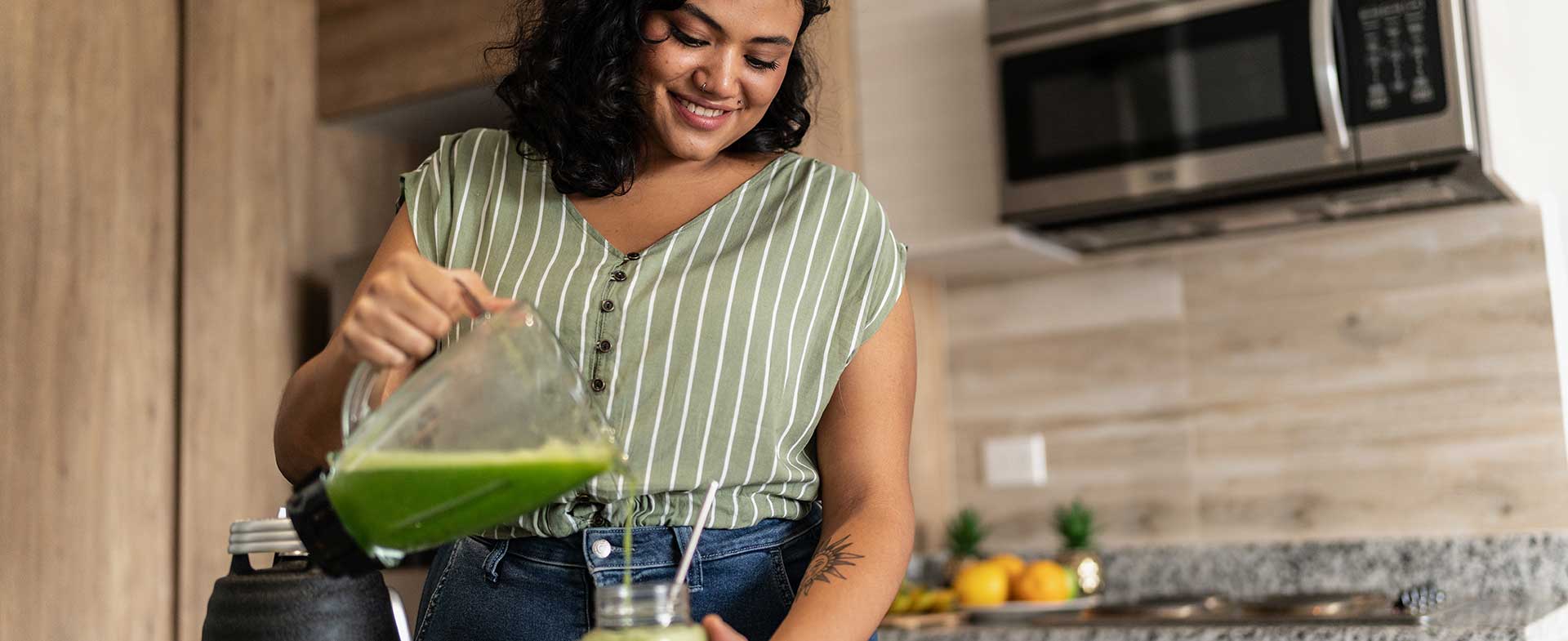It’s not exactly something people talk about often, but if you have irritable bowel syndrome (IBS), you are not alone. IBS is a chronic condition that affects millions of Americans and roughly 10-15% of the world population. It occurs when you have abdominal pain and altered bowel habits that can’t be attributed to any other issue (think: food sensitivities, Crohn’s or celiac disease, etc.). This, however, can make it difficult to treat.
"IBS is a condition where one size definitely does not fit all," says Ryan Barish, M.D., a functional medicine physician at Henry Ford Health. "Addressing underlying imbalances in gut health, diet and stress levels through a personalized, integrative approach can make a significant impact on symptoms. Healing the gut often requires a combination of dietary changes, stress management and sometimes additional support for digestion and gut flora balance."
Here, integrative treatment options that may help alleviate symptoms of IBS.

Do You Have IBS?
- Specialized diets. In many cases, those with IBS experience a symptom flair-up after eating certain foods. Elimination diets may help, like the low FODMAP diet, which involves avoiding foods that contain specific types of carbohydrates. Another example: Some people find their symptoms are alleviated when they go gluten-free. These types of diets can also help pinpoint what types of foods trigger bloat, abdominal pain, gas and other symptoms.
- Behavioral therapy. We’ve all experienced butterflies in our stomach when we’re nervous – which shows that our brain and digestive system are directly related. When we’re stressed out, it affects our stomach, too. “A history of stress may contribute to IBS,” says Tracey Torosian, Ph.D., a health psychologist who specializes in gastrointestinal health at Henry Ford Health. “Using therapy to find coping mechanisms to deal with stress in a productive way can help minimize symptoms of IBS. If needed, your doctor can refer you to a health psychologist.”
- Stress-relieving activities like meditation and acupuncture. Speaking of stress, meditation is another way to offset stress and anxiety. Learn about the breathing exercises that can help digestion here. Much like meditation, acupuncture can also be used as a relaxation technique – and it can help manage the pain that comes from IBS.
- Probiotics. There is a strong connection between bacteria in the gut and IBS, and taking probiotics can help encourage healthy gut bacteria. “An alteration in the normal bacteria or flora in the GI tract can lead to symptoms of IBS, so getting gut bacteria to a stable level can make a big difference,” says Radhika Aggarwal, M.D., a gastroenterologist at Henry Ford Health.
- Turmeric and peppermint oil. Some herbs have also been known to help alleviate IBS symptoms. Turmeric, for example, may help reduce inflammation and bloating, while peppermint oil can be beneficial for abdominal discomfort and reduce cramping.
Because IBS is treated based on individual symptoms and pinpointing your unique triggers, it is important to work with a doctor to find the best treatment options for you. “A good strategy for many patients is to follow their doctor’s treatment recommendations in combination with other natural treatments,” says Dr. Aggarwal. “Finding a balance that is right for you and that doesn’t interfere with your daily life is the ultimate goal.”



